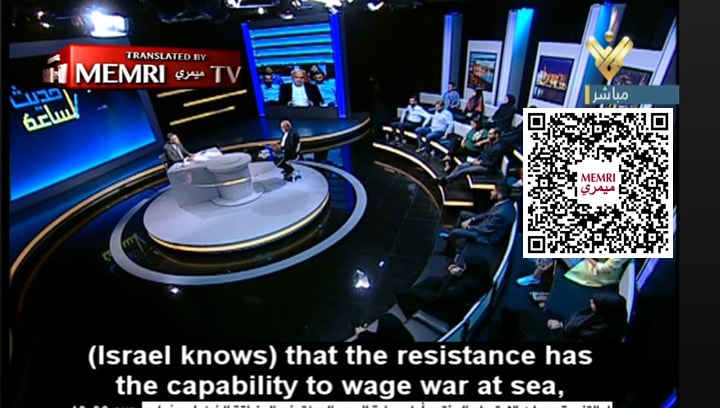
Hizbullah-affiliated Lebanese journalist Ibrahim Al-Amine, who serves as the Editor-in-Chief of Al-Akhbar, said in an August 12, 2022 show on Al-Manar TV (Hizbullah-Lebanon) that Hizbullah is prepared for war with Israel, and that unlike in the past, it has the ability to start the war. He said that Hizbullah has large-yield precision missiles that can make Israeli cities look like Beirut's Dahiyeh neighborhood looked after the Second Lebanon War, and he said that Hizbullah also has naval warfare capabilities that can disrupt navigation in the Mediterranean Sea and in the Red Sea. In addition, Al-Amine said that Hizbullah has a special unit that can invade Israel and "liberate" parts of it. For more about Ibrahim Al-Amine, see MEMRI TV Clips Nos. 8891 and 8575.
Ibrahim Al-Amine: "This is no secret. Even the Israelis talk about this. Among the military units of the resistance, there is a unit for offensive operations. There is a force that has a mission to attack and enter occupied Palestine, in an effort to liberate part of the occupied Palestinian lands from the Israelis.



[...]
"Today, the resistance is capable of starting a war."
Interviewer: "It is?"
Al-Amine: "Perhaps in the past, the resistance did not want to start a war, but today it is capable of starting a war if it wants to. Starting a war requires a different kind of strategy, a different kind of readiness, a different kind of operational command, and human, as well as military, capabilities. The resistance has reached a level that allows it to start a war.


[...]
"[Hizbullah's] missiles are not like the missiles of the past, which were meant to harass or embarrass the enemy."


Interviewer: "We are now talking about precision missiles..."

Al-Amine: "It is not merely precision. They have an enormous explosive yield. What we saw in Dahiyeh [in Beirut] in 2006, as a result of the Israeli bombardment — the resistance missiles can produce the same images in the Israeli cities.



[...]
"[Israel knows] that the resistance has the capability to wage war at sea, without the need to reach the shore. This allows it to disrupt all the navigation not only in the Mediterranean, but also in part of the Red Sea."
















